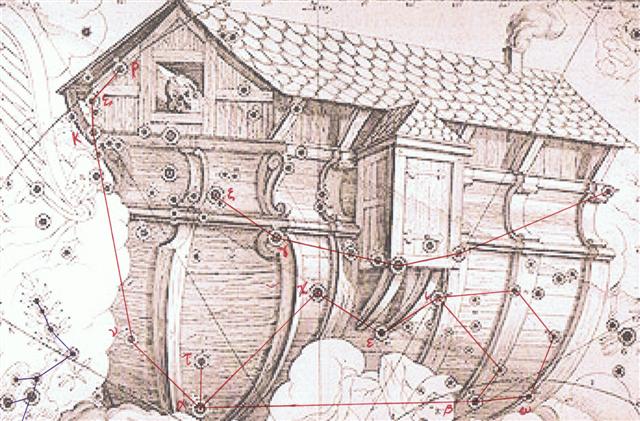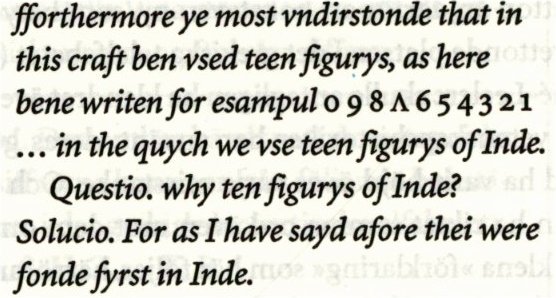519. When Captain Cook played the part of Rogo (Lono) dis-aster struck his ship after having left the winter solstice ceremonies behind: ... Cook's first visit, to Kaua'i Island in January 1778, fell within the traditional months of the New Year rite (Makahiki). He returned to the Islands late in the same year, very near the recommencement of the Makahiki ceremonies. Arriving now off northern Maui, Cook proceeded to make a grand circumnavigation of Hawai'i Island in the prescribed clockwise direction of Lono's yearly procession, to land at the temple in Kealakekua Bay where Lono begins and ends his own circuit. The British captain took his leave in early February 1779, almost precisely on the day the Makahiki ceremonies closed. But on his way out to Kahiki, the Resolution sprung a mast, and Cook committed the ritual fault of returning unexpectedly and unintelligibly. The Great Navigator was now hors catégorie, a dangerous condition as Leach and Douglas have taught us, and within a few days he was really dead - though certain priests of Lono did afterward ask when he would come back ...
Obviously he should not have returned but gone down together with his ship.
... At length there appeared beside them the gable and thatched roof of the house of Tonganui, and not only the house, but a huge piece of the land attached to it. The brothers wailed, and beat their heads, as they saw that Maui had fished up land, Te Ika a Maui, the fish of Maui. And there were houses on it, and fires burning, and people going about their daily tasks. Then Maui hitched his line round one of the paddles laid under a pair of thwarts, and picked up his maro, and put it on again ...
For the Full Moon was at zayin in Argo Navis and from there to the Long Sand-bank (ζ Corvi)
there were *186 - *121 = *65 right ascension days (equal to for instance the difference between 365 and 300).
When Maui had fished up Land his comrades committed the ritual fault of beginning to eat this Fish before it was allowed: ... 'Now while I'm away,' he said, 'show some common sense and don't be impatient. Don't eat food until I come back, and whatever you do don't start cutting up the fish until I have found a priest and made an offering to the gods, and completed all the necessary rites. When I get back it will be all right to cut him up, and we'll share him out equally then. What we cannot take with us will keep until we come back for it.' Maui then returned to their village. But as soon as his back was turned his brothers did the very things that he had told them not to. They began to eat food, which was a sacrilege because no portion had yet been offered to the gods. And they started to scale the fish and cut bits off it. When they did this, Maui had not yet reached the sacred place and the presence of the gods. Had he done so, all the male and female deities would have been appeased by the promise of portions of the fish, and Tangaroa would have been content. As it was they were angry, and they caused the fish of Maui to writhe and lash about like any other fish. That is the reason why this land, Aotearoa, is now so rough and mountainous and much of it so unuseful to man. Had the brothers done as Maui told them it would have lain smooth and flat, an example to the world of what good land should be. But as soon as the sun rose above the horizon the writhing fish of Maui became solid underfoot, and could not be smoothed out again. This act of Maui's, that gave our people the land on which we live, was an event next in greatness to the separation of the Sky and Earth ... The creator of the G text has inserted a kind of compressed (not smooth and flat) calendar for the year beginning with Ga2-27 (at heliacal Naos, 57 = 3 * 19) and ending with Ga7-10 (16h, 179), i.e. covering 123 days - corresponding to the glyph number at Intrometida (Inserted, 19 * 27 = 513) in the Southern Cross.
There are 471 glyphs on the G tablet and with 123 inserted the rest will be 471 - 123 = 348 = 12 * 29, the same as the number of glyphs on side b of the C tablet. Natural numbers and counting came before reading and the letters of the alphabet. ... Most ingenious Thoth, said the god and king Thamus, one man has the ability to beget arts, but the ability to judge of their usefulness or harmfulness to their users belongs to another; and now you, who are the father of letters, have been led by your affection to ascribe to them a power the opposite of that which they really possess. For this invention will produce forgetfulness in the minds of those who learn to use it, because they will not practise their memory. Their trust in writing, produced by external characters which are no part of themselves, will discourage the use of their own memory within them. You have invented an elixir not of memory, but of reminding; and you offer your pupils the appearance of wisdom, not true wisdom, for they will read many things without instruction and will therefore seem to know many things, when they are for the most part ignorant and hard to get along with, since they are not wise, but only appear wise ...
I have earlier counted the number of 'double feathers' - like those 5 in the glyph at 16h - and the sum was 156 (= 12 * 13). But I did not count those in the following glyphs:
And I did not count 'single feathers', those which can be found in these glyphs:
Numbers are internal characters, such which have their roots in your mind. 156 + 48 = 204 (= 264 - 60 = 364 - 160):
|
||||||||||||||||||||||||||||||||||||||||||||||||||||||||||||||||||||||||||||||||||||||||||||||||||||||||||||||||||||||||||||||||||||||||||||||||||||||||||||||||||||||||||||||||||||||||||||||||||||||||||||||||||||||||||||||||||||||||||||||||||||||||||
















